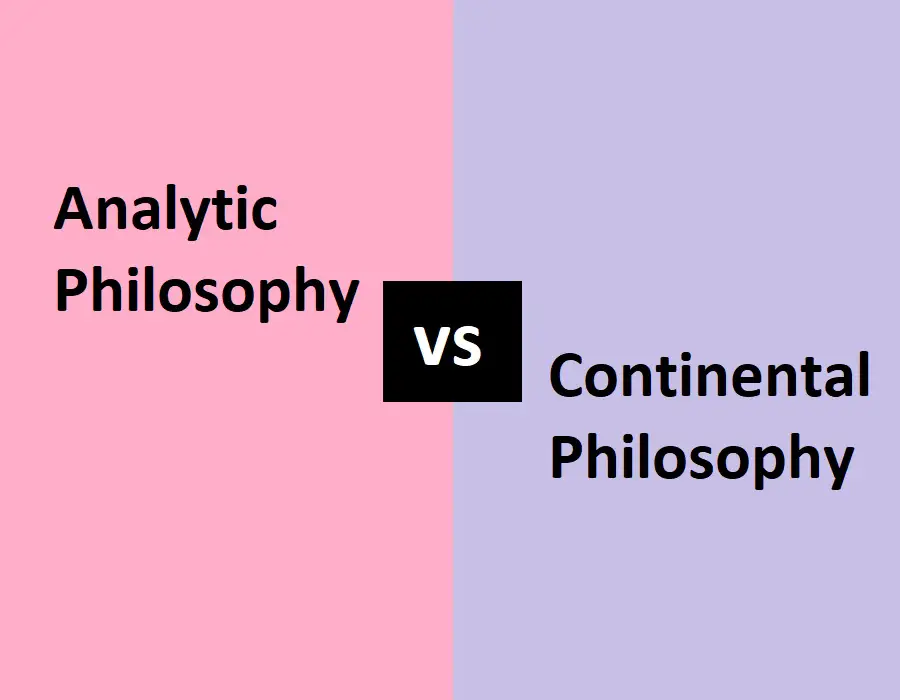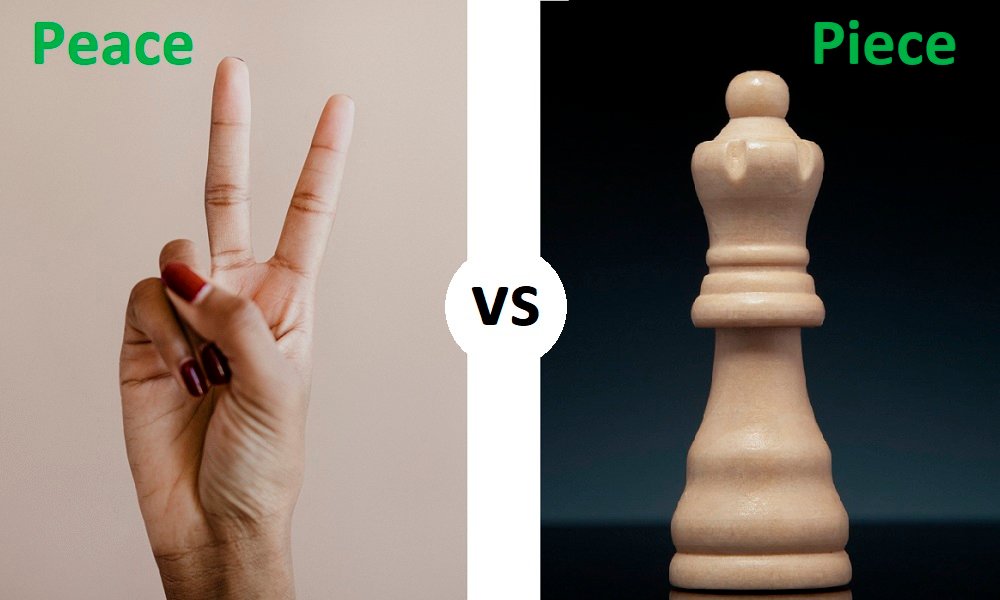Analytic and Continental Philosophy: 4 Key Differences
Analytical philosophers and continental philosophers use different methods to come to a consensus about a subject.
As a result, there are a number of differences between analytic philosophy and continental philosophy.
This analytic vs. continental philosophy article will highlight a few key differences between these two philosophies, so keep reading to learn more about them.
What Is Analytic Philosophy?

Analytic philosophy was developed by Gottlob Frege, Bertrand Russell, G. E. Moore, and Ludwig Wittgenstein.
They developed this philosophy in the early twentieth century, and this philosophy become popular among western countries that predominantly speak English.
In addition, countries like the United Kingdom or Great Britain, the United States of America, and a few other English-speaking nations have contributed much to these philosophies through their research and studies.
Analytical philosophers are very literal, as they want answers that can be proved with logic, numbers, and sciences. As a result, they relate more with natural sciences and less with the humanities sector,
Their analogies are apolitical, and they focus on logic and the meaning of words to describe their perspective.
Hence, for instance, an analytical philosopher will analyze and dissect the meaning of the word moral instead of asking, “What is the best moral system.”
What Is Continental Philosophy?

Hegel, Nietzche, and Heidegger developed the continental theory in the late twentieth century, and this philosophy gained momentum in European countries like Germany and France.
These countries have contributed to this sector through research and studies. The continental philosophy emerged as philosophers didn’t see eye-to-eye with the ideologies of analytical philosophy.
Continental philosophy houses a range of philosophies like French feminism, existentialism, and psychoanalytic theory, to name a few; these philosophies are not related to each other but fall under the umbrella of continental philosophy.
Their approach to philosophy is more reflexive as they try to understand human behavior by using social science.
They do not believe that scientific models that dissect, analyze, and explain ideas provide a comprehensive answer.
Instead, they look at things from a humanistic perspective, thus investigating the context and history of a subject matter to draw a conclusion.
Their work is more intuitive, thus relatable to people, and less related to science. They work with politics of sexuality, history, desire, etc.
Analytic Philosophy vs. Continental Philosophy: A Brief Overview

Historically, there has been some tension among the analytic philosophers and continental philosophers as they did not see the eye in their methods. However, there are a few differences between these philosophies; let’s explore what they are!
1. The Inception of Analytic vs. Continental Philosophy
English-speaking philosophers started analytic philosophy in the early 20th century. It was mainly piloted by Gottlob Frege, Bertrand Russell, G. E. Moore, and Ludwig Wittgenstein.
On the other hand, analytic philosophy was piloted on European grounds at the end of the twentieth century by Hegel, Nietzche, and Heidegger et al.
2. Strength of Analytic vs. Continental Philosophy
Analytic philosophy analyzes a topic with logic and provides statements with solid reasoning. They analyze language and get to the bottom of an idea to find the answers.
Their drive to find a solution by just using logic is similar to natural sciences. As a result, the analytic philosophers relate to them as well.
On the flipside, continent philosophy draws on introspection and produces a nexus between history and human traits while theorizing an assumption.
They also disagree with analytic philosophy in the aspect of basing all philosophy on natural sciences.
3. Weakness of Analytic vs. Continental Philosophy
Since analytic philosophy focuses on finding answers by logic, they lack any introspection or reflexivity.
Hence, their philosophies lack that relatable material that people resonate with. On the other hand, continental philosophy focuses on particular subject matters that might narrow their field to the point that they derail from a holistic answer.
4. Structure of Analytic vs. Continental Philosophy
Analytic philosophy does not have a fixed structure to follow, unlike Continental philosophy. Analytical philosophy has a more systematic method, while contingent philosophy has a more literary touch with self-reflection; thus, making it relatable.
Recommended for You:
Comparison Table between Analytic and Continental Philosophy
| Parameters of comparison | Analytic Philosophy | Continental Philosophy |
| Origin | It was established by English-speaking philosophers mainly based in the United Kingdom and the United States of America in the early twentieth century. | It was established after analytic philosophy by European philosophers in the late twentieth century. |
| Founders | Gottlob Frege, Bertrand Russell, G. E. Moore, and Ludwig Wittgenstein | Hegel, Nietzche, and Heidegger et al. |
| Views | Analytic philosophers analyze ideas by dissecting language, offering arguments based on logic and scientific models. As they preferred to work with solid arguments rather than assumptions, this branch relates more to natural sciences. | Continental philosophers combine elements of human nature, politics, and history to explain their answers. To tackle a question, they will look at individuals, society, and history. They view questions from a humanistic perspective and use introspection to present ideas. |
| Weaknesses | Analytical philosophy work lacks introspection and an aspect of self-reflection when handling a topic.
|
Under the umbrella of continental philosophy, we will find many philosophies like French feminism, will, desire, etc., that use different structures. Hence, there is a lack of framework and consistency.
|
Main Differences between Analytic and Continental Philosophy
- Analytic philosophy focuses on the language, logic, and sciences to describe their perspective, whereas continental philosophers do not think that science and logic should be the only way to describe a philosophical answer.
- Continental philosophy provides insights instead of solid arguments, but analytic philosophy is based on solid arguments and shows logic backed with science to explain something.
- Analytical philosophy is more apolitical, while continental philosophy is more political and works with history, sexuality, gender, and desire to name a few.
- Continental philosophy uses more intuitive and reflexive philosophy as they look at things from a humanistic perspective to provides an intuitive answer that is relatable.
In contrast, analytical philosophy misses the mark in this instance as they have an absence of introspection because they dissect everything with logic. Hence, their work is not reflexive, thus unrelatable to most.
Final Verdict
Since its inception, analytic vs. continental philosophy has been a subject of debate among philosophers.
However, the animosity between analytic and continental philosophy is hard to understand as both philosophies tackle two different methods to describe a topic.
Analytic philosophy analyses topics with logic and follows a more scientific model; however, continental philosophers draw a nexus between two issues to understand a subject better.






